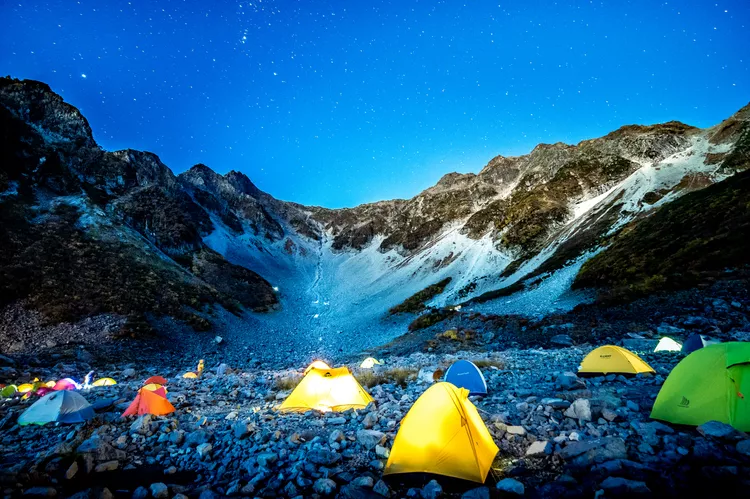1. Overview of Camping in Japan
2. Campground Amenities
3. Campground Fees
4. Urban Camping
5. When to Book Your Trip
6. Where to Camp
Camping in Japan is a popular leisure activity for both residents and tourists. With an abundance of forests and a scenic coastline, finding beautiful places to pitch a tent is easy. In fact, the country boasts nearly 3,000 campsites, including several located just outside Tokyo.
If roughing it at campgrounds isn’t your style, places such as Hoshinoya Fuji, a stylish outdoor site near Mount Fuji, offer “glamping”—a luxurious camping experience featuring spacious tents that resemble cabins, eliminating many inconveniences associated with traditional camping.
Campground Amenities
Most campsites in Japan provide essential amenities, including showers, restrooms, electrical outlets, and accessible water. Some sites even offer additional facilities like hot springs, tennis courts, dog parks, fishing areas, and children’s playgrounds. Moreover, many campgrounds sell or rent out a variety of camping gear for your convenience.
Campground Fees
Campsite fees can reach several thousand yen per night. However, there are free and low-cost alternatives available, which can help you minimize costs while enjoying your trip in this otherwise expensive country.
Urban Camping
If you would like to save on fees and remain close to the city, urban camping may be an option for you. This method allows you to park a camper or pitch a tent in designated public and residential areas for up to 24 hours. It is advisable to choose a discreet spot to minimize disturbances, keep noise to a minimum, and ensure you leave early the next day. Additionally, avoid camping in the same location for more than one night to comply with regulations.
When to Book Your Trip
Camping is particularly popular in Japan during the summer months (July through August) and on weekends, making early reservations crucial. Note that many campgrounds close during the winter months, so planning ahead is essential. When making reservations, ensure to inquire about check-in and check-out times.
Where to Camp
Although Japan is renowned for its vibrant cities, the country also boasts stunning landscapes and picturesque scenery just beyond the urban centers. Numerous campsites are located within a short distance from JR train stations around Tokyo, allowing you to travel without needing to rent a car. One option is Hikarigaoka Park, only a five-minute walk from the metro on the Toei Oedo line, featuring a soccer field, basketball and tennis courts, and an aviary. Additionally, Jonanjima Seaside Park, situated south of Tokyo, offers 1,000 campsites, providing plenty of options for your camping experience. For further information about camping in Japan’s remarkable national parks, refer to the Japan National Tourism Organization, which offers valuable resources in English for international travelers.





